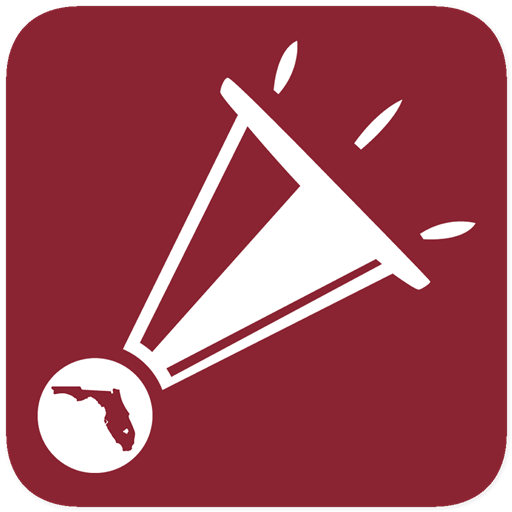Building Your Resume
Why make a resume?

Building Your Resume
The organization is key in making yourself as attractive an applicant as possible! To create your own resume, follow the basic recipe below.
After your “Heading” and “Education,” feel free to rearrange, rename, combine, or omit categories so that they make the most sense with your unique background. For example, you can leave out “Special Projects” if you have none, or break “Experience” into “Work Experience” and “Volunteer Experience” if you have a lot of each”
Student Resumes should include the following categories, which are explained in detail below:
- Heading
- Objective
- Summary of Qualifications (Optional)
- Education or Academic Profile (Choose either name)
- Honors & Awards
- Leadership Positions (Optional – Could instead include this information in #7, #8, #9, #10, &/or #11)
- Extracurricular Activities (Divide into Co-Curricular Activities and Extracurricular Activities if needed)
- Volunteer, Work, & Research Experience (Choose all that apply or divide into separate categories if needed)
- Foreign Language Proficiency
- Summer-Specific Activities
- Enrichment Activities
- Special Projects (If applicable)
- Computer Skills
- Other (Specify additional categories If applicable)
- At the top of your resume, include your name, address, phone number, and email address.
- If the college has requested your applicant number on other documents for tracking purposes, include that number on your resume, too.
- This is the statement detailing the purpose in sending a resume (e.g. Seeking a position in the Freshman class of 2012 at Columbia University).
- List those personal qualities, strengths, and skills that give you the edge over other candidates.
Oftentimes, a well-written Summary of Qualifications will set the tone for the rest of your resume. - Do NOT lie on a resume and be careful about mentioning skills like “good research skills,” “strong analytical skills,” or “good organizational skills.” Anybody can mention things like this. If you do, make sure that the rest of your resume supports your allegations!!!
- List all the high schools you attended, including location (city and state) and dates attended.
- List your G.P.A. and/or H.P.A. (weighted G.P.A.) if above a 3.0. Remember to list the scale as well. G.P.A. = 3.2/4.0 and H.P.A. = 4.1/6.0
- Specify your class rank and percentile rank (e.g. 5/323 or top 10% of class) if in the upper 50% of your class
- Include Standardized Tests results (e.g. A.C.T.s, S.A.T.s, S.A.T. Subject Tests, P.S.A.T.s, A.P. Examinations, F.C.A.T.s) if above average.
- List any impressive, challenging, unique, or A.P. courses taken including the grade when taken (e.g. Honors Calculus (10th), A.P. Biology (11th – in progress), Trigonometry & Analytical Geometry in Greek (10th), or Latin I & II (9th & 10th)).
Try to either list coursework by grade or by subject area as bullets to maintain neatness and organization.
( Optional- Could instead include this information in the Co-Curricular @ Extracurricular Activities, The Volunteer Work & Research Experience , the Special Projects, the Enrichment Activities, or the Summer Programs Categories)
- List any leadership positions held and a brief description if needed.
- Include the dates you held this position, the responsibilities involved, and the skills gained.
- Mention your recognitions here (e.g. Greek Foreign Language Diplomas – if not mentioned in the section on Foreign language Proficiency below, honor roll certificates, scholarships received, medals earned, contests won etc…)
- Specify the grade (or date – month & year) when you received each honor or award.
- Include a short description of the award and why you won it if it is not implied by the name.
(Divide into Co-Curricular Activities & Extracurricular Activities if needed)
- Think about everything you’re involved in: clubs, sports, art, music, drama, journalism, religious groups, community service and so on. Then list these as extracurricular activities.
- Start with either the most significant and impressive or the most recent at the top. 1 2
- 1 If the list of Activities is overwhelming separate this category into two separate main categories, one called Co-Curricular Activities and the other Extracurricular Activities
- Co-Curricular Activities include membership in school-related student clubs, honor societies, or sports teams etc…
- Extracurricular Activities include activities done with non-school related groups like independent soccer leagues, ballet, or church etc…
- 2.Another option if this list is too long is to create subgroups under the Extracurricular Activities main group like “Music’ or “Sports”
- 1 If the list of Activities is overwhelming separate this category into two separate main categories, one called Co-Curricular Activities and the other Extracurricular Activities
- For each item on your list, do the following:
- Specify the positions held and the grades in which you were involved
- If necessary, briefly describe the position or activity.
- Specify the dates of involvement (e.g., spring 2008 or June – August 2009)
- Specify the amount of time spent on it (e.g., 5 hours per week or 60 hours total).
- Specific contributions, duties, and recognitions earned in each activity
- Mention any leadership roles (e.g. President, Captain, or Editor-In-Chief etc…
- Put your achievements in perspective whenever possible so individuals can judge its impressiveness more accurately.
° Be brief but descriptive! Instead of “High School Newspaper”, consider (if accurate) “Reporter1′ (9th & 10th), “School Newspaper Recognized as Best in County in 2007,” “Team ranked in the top 10 in California,” or “Only three students at Liberty High School received this award.”
(Choose all that apply or divide into separate categories if needed)
- Describe the work, research, or volunteer experience you participate in throughout the year.
- Don’t forget non-traditional work, such as babysitting or helping out with the family business.
- For each item, include the job title, name of the organization (include the URL potentially), location, and dates (month & year)
- Include the number of hours a week or a month spent on the project or the total amount of hours volunteered on each project.
- Include a description of responsibilities including anything that would be impressive, followed by bullet points
- Highlighting specific accomplishments on the job
- A Basic Speaker
- A1 Breakthrough or beginner
- A2 Waystage or elementary
- B Independent Speaker
- B1 Threshold or intermediate
- B2 Vantage or upper intermediate
- C Proficient Speaker
- Cl Effective Operational Proficiency or advanced
- C2 Mastery or proficiency
- A1
- Can understand and use familiar everyday expressions and very basic phrases aimed at the satisfaction of needs of a concrete type. Can introduce him/herself and others and can ask and answer questions about personal details such as where he/she lives, people he/she knows and things he/she has. Can interact in a simple way provided the other person talks slowly and clearly and is prepared to help.
- A2
- Can understand sentences and frequently used expressions related to areas of most immediate relevance (e.g. very basic personal and family information, shopping, local geography, employment). Can communicate in simple and routine tasks requiring a simple and direct exchange of information on familiar and routine matters. Can describe in simple terms aspects of his/her background, immediate environment and matters in areas of immediate need.
- B1
- Can understand the main points of clear standard input on familiar matters regularly encountered in work, school, leisure, etc. Can deal with most situations likely to arise whilst travelling in an area where the language is spoken. Can produce simple connected text on topics which are familiar or of personal interest. Can describe experiences and events, dreams, hopes & ambitions and briefly give reasons and explanations for opinions and plans.
- B2
- Can understand the main ideas of complex text on both concrete and abstract topics, including technical discussions in his/her field of specialisation. Can interact with a degree of fluency and spontaneity that makes regular interaction with native speakers quite possible without strain for either party. Can produce clear, detailed text on a wide range of subjects and explain a viewpoint on a topical issue giving the advantages and disadvantages of various options.
- Cl
- Can understand a wide range of demanding, longer texts, and recognise implicit meaning. Can express him/herself fluently and spontaneously without much obvious searching for expressions. Can use language flexibly and effectively for social, academic and professional purposes. Can produce clear, well-structured, detailed text on complex subjects, showing controlled use of organisational patterns, connectors and cohesive devices.
- C2
- Can understand with ease virtually everything heard or read. Can summarise information from different spoken and written sources, reconstructing arguments and accounts in a coherent presentation. Can express him/herself spontaneously, very fluently and precisely, differentiating finer shades of meaning even in the most complex situations.
- Here is your chance to Include relevant programs, community projects, travel experiences, hobbies, church activities, musical accomplishments that are important to you and you participate in on a regular basis.
(If Applicable)
- This category is optional and gives you a way to include one-time activities, like a science fair project, academic projects, or a particularly inspiring weekend working for Habitat for Humanity.
- List your technical and computer skills. Indicating what computer systems (IBM-PC, Macintosh), Languages, Networks, and Applications (Microsoft Office, etc.) you are proficient in or have a working knowledge of.
 FortifyFL
FortifyFL